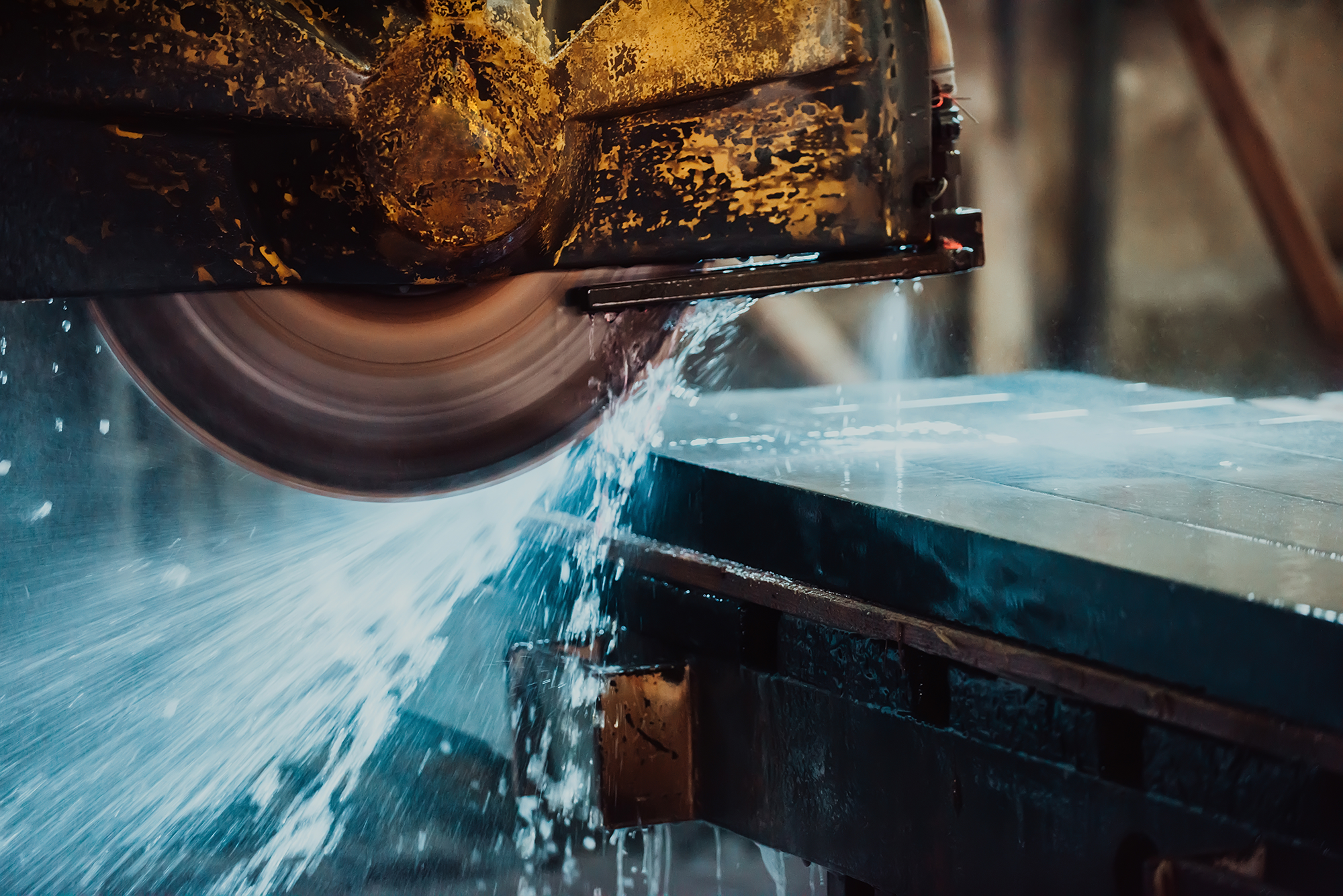
Frequently Asked Questions
-
Silica is a naturally occurring mineral that fabricators and installers are exposed to when cutting, drilling, grinding, sanding, polishing, or cleaning man-made stone. The most dangerous hazard comes from working with artificial, man-made stone that contains a high percentage of silica minerals. Without proper protection, workers breathe in silica dust and are likely to get the fatal disease silicosis. Most workers diagnosed with silicosis were working with artificial, man-made stone countertops.
-
Exposure to silica occurs from breathing it in the air when cutting, drilling, grinding, sanding, polishing, or cleaning artificial, man-made stone. Silicosis can develop quickly after only a few months, or slowly over several years depending on the level of exposure to the dust in the air.
-
Employers must take steps to protect fabricators and installers from silicosis by ensuring safe work practices are used when cutting, drilling, grinding, sanding, polishing, or cleaning artificial, man-made stone. More detail is available on Workers’ Rights and Information for Employers.
-
If you work in an industry with silica dust, you should have regular medical checkups, even if you do not have symptoms. Inform your healthcare provider that you are exposed to silica on the job. If you experience symptoms, see your doctor immediately. If silicosis is suspected, you will be referred to a specialist for further testing.
-
• Persistent cough
• Difficulty breathing
• Extreme fatigue and tiredness
• Chest pain
• Loss of appetite and weight loss
• Fever
• Nails or lips with a bluish tint -
There is no cure for silicosis, and treatment focuses on stopping its progress and relieving symptoms. It is crucial to avoid further exposure to silica and other irritants, such as cigarette smoke. Tuberculosis testing is essential, as silicosis tends to be more severe in those who suffer from it.
-
Once your doctor determines the degree of lung damage that has occurred, he or she will be able to provide you with a treatment plan.
• Long-term oxygen therapy
• Bronchodilator medications
• Pulmonary rehabilitation
• Lung transplant -
Occupational Exposures to Respirable Crystalline Silica (Section 5204)
On December 14, 2023, section 5204 was amended on an emergency temporary basis to address additional employee protection requirements that go into effect on December 29, 2023. This emergency standard is temporary, and Cal/OSHA is working on creating a permanent version.
These changes apply to California workers occupationally exposed to RCS, except:
• Construction work covered under section 1532.3.
• Agricultural operations covered under section 3436.
• Exposures that result from the processing of sorptive clays.
